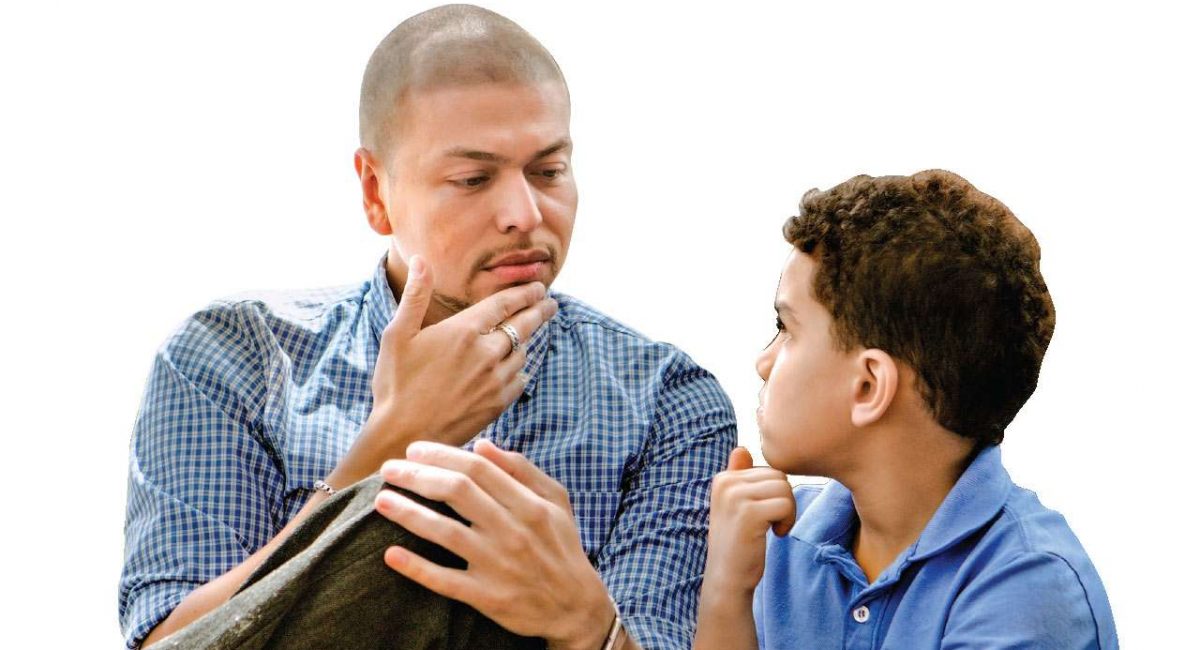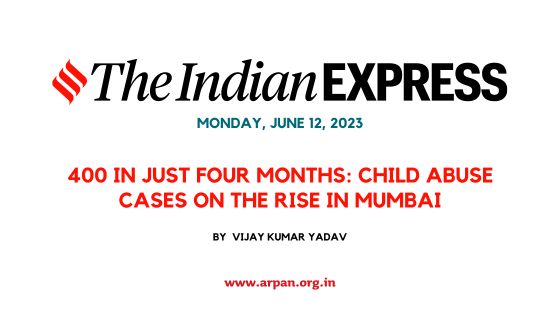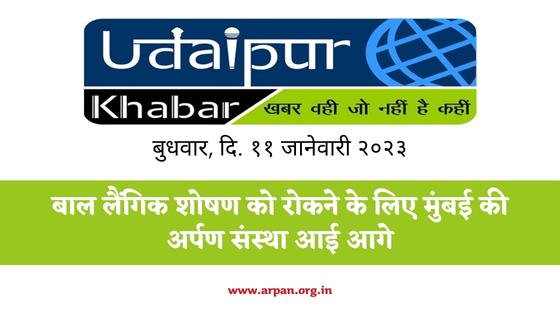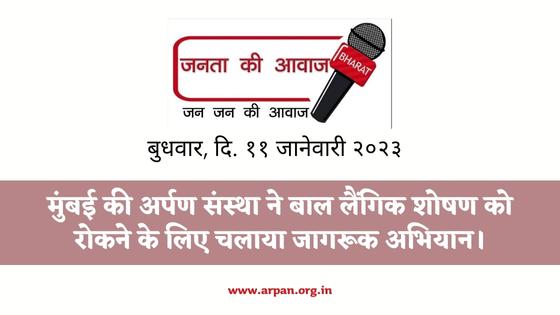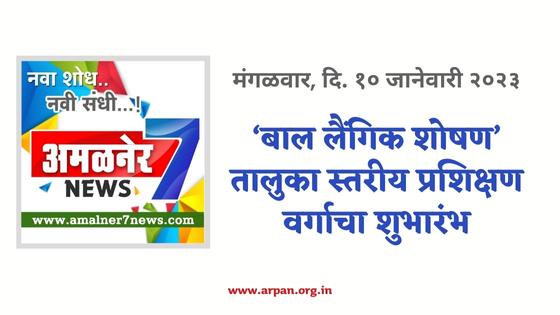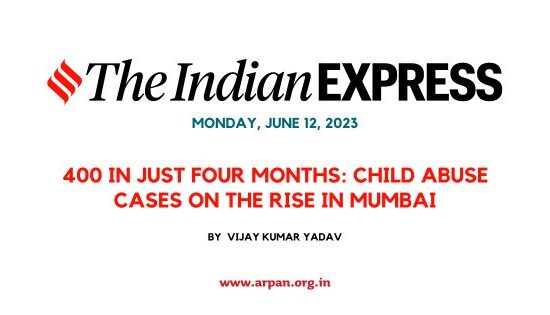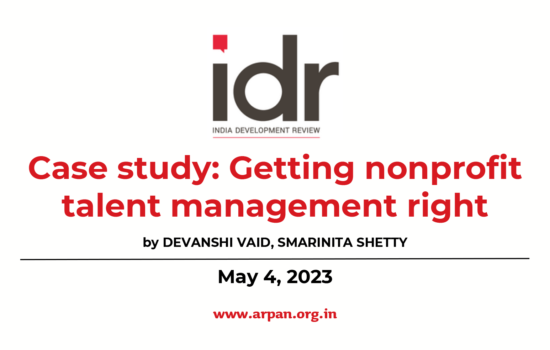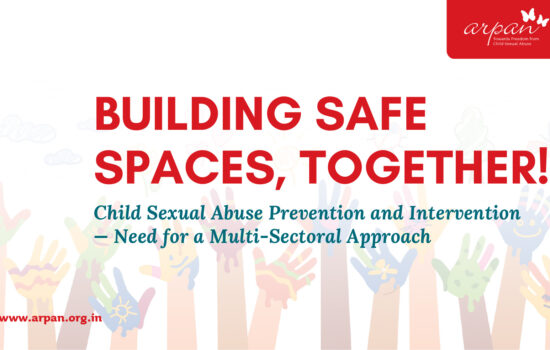Ajay Kapoor remembers how more than a year ago his daughter Mannat, then 13, would clam up during ‘that time of the month’ in front of him. “She used to get very scared whenever she had left ‘red marks’ on the sheets. She would rush to her mother, convey what happened in a hushed tone, and both of them would hurry to change the sheets. There was so much guilt attached to menstruation. Even I was uncomfortable talking about menstruation, puberty and bodily changes with my daughter,” says the 47-year-old owner of a US-based healthcare firm with Indian-based operations from Nagpur.
This continued till his wife Jyotika, an Access Bars Facilitator (BF), happened to collaborate with Mumbai-based sex educator, Anju Kish, on a project. Kish, author of How I got my Belly Button, also teaches sex ed through her company Untaboo. That’s when the family learned about the concept of sex education and Kapoor, his daughter and elder son Ankit, each attended separate Untaboo workshops. That broke a communication barrier. Suddenly the family was able to have more ‘matured’ discussions, using the words ‘testicles’, ‘penis’, ‘vagina’ while talking to each other without feeling coy.
“The other day I asked my daughter, now 14 years, for a glass of water. She told me to excuse her as she was experiencing period cramps and finding it difficult to get up. Seeing my girl express herself so freely is just beautiful! Even Ankit has became a lot more natural, respectful, and understanding towards his sister after learning what a girl goes through when on her periods. And today, my wife and daughter openly discuss about infatuations to body shaming in front of me. Not in a corner,” Kapoor shares he and his brother were left to figure things on their own as their parents never spoke to them about sex and sexuality. So he finds it enlightening that he’s able to advise his son how to take care of his genitals and contraception and safe sex. In fact, this president of the Nagpur rotary club recently invited Kish to give a Sex-Ed talk to its 200+ members, which he says, was extremely well-received.
Elephant very much in the room
Just as the increasing number of stay-at-home, divorced, single, remarried, same-sex and adoptive dads are giving the heteronormative concept of fatherhood – traditional breadwinner and rule-maker – a good kick, Indian fathers are gradually learning to educate their children about sex education. But talking about ‘sex’ is still a taboo in many Indian households. This includes talking about appropriate and inappropriate touch, same-sex love, contraception, bodily changes around puberty – menstruation and erection, child sex abuse (CSA), consent, etc.
“My husband still hesitates to have these conversations with our two sons (20 and 16 years old), and puts the onus on me, after he’s seen me discuss these subjects for so long,” admits Kish, who says the number of dads attending her Sex-Ed workshops has gone up from 1-2 dads, when she started these eight years ago, to 3-4 now. Dads have told her they feel embarrassed, awkward, don’t know how to articulate, and even dismiss the whole subject saying ‘we figured out all of it on our own and so will our kids’. “And when they do talk about this, they only explain the physical and biological side and not the emotional, social, gender-sensitive parts to it.”
Like 18-year-old Niyati Sharma’s dad, a consultant for the FRRO. She says he does make an effort to talk about these issues, especially since this Delhi girl is the one behind the Pratisandhi initiative that promotes Sex Ed among the youth. But with a bit of hesitancy. “When I was in Grade 7, he just came up to me one day told me it was normal for me to like guys. That inherently taught me should I ever like a guy, I can tell dad. He has also talked to me about consent, the right to say no. But much of our conversations has been about his concern that I am a young girl educating people on sex. It’s mostly ‘be careful’ and ‘don’t give your phone number to everyone’. While I feel I can have those talks with him if I feel like, I see he’s more comfortable talking to my brother about girlfriends, going on dates, etc.”

Educate a man, educate a generation
These hiccups do prevail in certain pockets of the Indian societal fabric, agrees Dr Rajan Bhonsle, MD, Hon Professor & HOD, Department of Sexual Medicine at KEM Hospital and GS Medical College. It is usually when the mother is a homemaker, and the kid gets to spend more time with her after school, while the father comes home late after a hard day’s work and is very tired. Then there are those who themselves carry a bias towards sex and sexuality. “Such men hesitate to talk to their daughter about periods, and tell the mother to do it because ‘she will be more comfortable with you telling her as even you get your periods, etc.'” But he disagrees in generalising this attitude, and says many dads are taking the lead in being concerned about the well-being of their child’s sexual health. “As a teacher of sex education and a sexologist, I took the lead to teach our son. Many single, widowed or divorcee fathers have brought their children to me when they’ve faced sexual issues, and I’ve educated them and they are doing a good job,” adding its a 35:65 ratio of men to women who register for his Sex Education course, “mainly because the classes are held in the afternoons, difficult for working men to attend.”
Kish remembers a parent who attended her sex-ed class, and came back overjoyed to tell her how he knew exactly what to do when his daughter experienced period cramps – a hot water bag, some soothing words and a bar of chocolate. “That girl is growing up knowing there is no stigma or embarrassment attached to these bodily changes.” At one workshop, a young girl shared how she told her dad that she’d been feeling uncomfortable when boys of her age were staring at her developing breasts. “The father told her how, when he was growing up, even he must have stared at the growing woman’s body, ‘out of pure fascination for this thing we didn’t have’. He suggested she should act normal, and carry on the conversation so the boy ultimately starts to look at her face.”
Sometimes, a little nudge from the wife in terms of sensitivity is all it needs to start a revolution. Take the case of father and businessman, Alexander John, 44. John’s wife had attended an appropriate/non appropriate touch session two years ago at NGO Arpan. She then started teaching age-appropriate sex education to their son, now 5, and two daughters, now 3 and 8. At first, John just sat through these talks, not knowing what to say. Then watching the wife speak and after she explained to him why even he needed to get involved, “it suddenly felt like the most natural thing for a parent to do. Now together we tell the kids why some parts are called ‘private’, how no one apart from my wife and I are allowed to bathe them and touch them there while bathing – except when its a checkup with the doctor, and that they can just get up, scream and tell us if they are uncomfortable with someone. Today I’m able to have these conversations with my kids on my own.”
In fact, a spurt of child sex abuse cases in media, shortly before
#MeToo broke out, horrified John enough to message on his children’s school (Ascend International, BKC) WhatsApp group for parents and invite those who wanted empower kids to defend themselves. That’s how Champions for Children (CfC) born. The group now has 40 dads who are working with NGOs and organisations to address CSA. One of their main activities is developing a range of apps, complying with Protection of Children from Sexual Offences act (POSCO). For instance, schools will be able check if a teacher has an CSA complaint against them, and using the home app, parents will be trained to spot signs of CSA in their child.
What fathers can do
Apart from visiting a counselor or a sex educator, try to find the right moment to break the ice. “If a scene on live-in relationships comes up on TV, you can casually ask the child their views on it. It gives the child a window to talk, and you the chance to slip in you values and together start a discussion. Sex education is not only about ‘sex’, but so much more,” advises Kish. Speak with openness and minus judgment to indirectly create an environment that feels like a safe space, advises Sharma. “This will make the child feel they can come and talk to you if and when such a situation arises.”
Sex education should begin from the day the child is born, and how you touch them while bathing, dressing them gives out subtle signals, feels Dr Bhonsle. “If you have any biases about private parts, say, if your one-year-son is touching his genital because he’s curious and you snub him, it will give him wrong signal. So be loving.”
Fathers should have a similar understanding after having caught their sons watching porn, instead of getting livid and pulling the child to her, says Kish. “Don’t make a child feel guilty for watching porn. If you scold them, they will make sure not to get caught. Instead, tell your girl that she can say no to sex, or any act. Tell your son that the way women are treated in porn films is disrespectful, that porn shows a purely physical, carnal, and emotionless act, has no consent or contraceptives used. An an average couple has sex on mutual satisfaction.” She adds that also, don’t get angry or try to hush it out when your child tells you they’ve been abused. “Before you do anything, including action against the abuser, first tell your child it’s not their fault, because it is not.”
Source: DNAIndia

